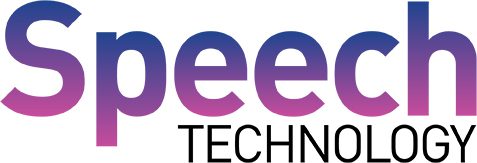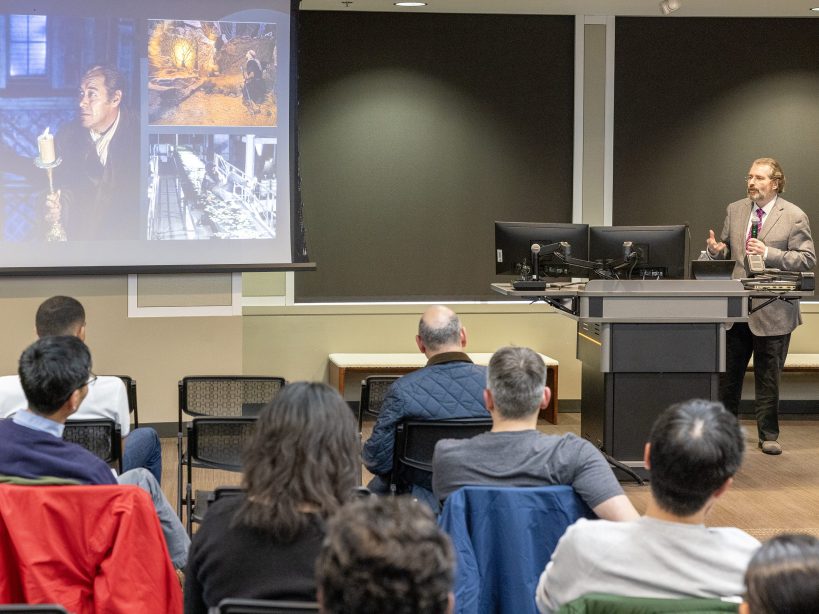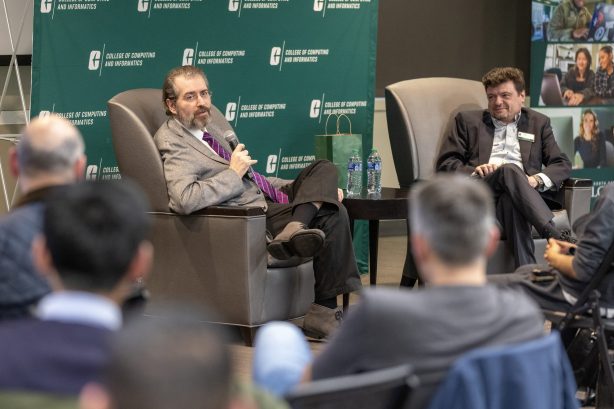Driven to Innovate
Entrepreneur Igor Jablokov '01 MBA is reducing the distance between people and information through artificial intelligence
By: PHILLIP BROWN
As Facebook, Google and smartphones were becoming more ubiquitous in society, the one-time IBM research engineer and program director Igor Jablokov ’01 MBA stood on a stage before an audience, opened a Motorola Razr flip phone and began to speak. Behind him on a giant screen, for all to see, his words appeared. The year was 2006, and the event was Five Ventures Challenge, an entrepreneurial pitch competition sponsored by UNC Charlotte. The pitch competition was the forerunner of today’s Charlotte Venture Challenge.
This speech-to-text technology was the impetus for Jablokov to launch Yap Inc., a startup that offered a fully cloud-based speech-to-text transcription platform. Amazon purchased Yap in 2011, using the revolutionary technology to eventually create Alexa, Echo and Fire TV.
Today, Jablokov is an “Industry Luminary” according to Speech Technology Magazine. His latest venture, Pryon, is taking the tech world by storm. It is a knowledge cloud company that aims to reduce the distance between people and information through artificial intelligence.

“Every institution is missing the equivalent of a centralized digital library,” Jablokov said. “We foresee every academic institution, Fortune 500 company and government agency will need this knowledge core to unify and safely share intelligence with their clients, partners and employees.”
Investors agree. Now valued on paper in the hundreds of millions, Pryon is one of the largest technology enterprises east of the Mississippi River.
Growing up on the Greek island, Poros, Jablokov lived his first six years without electricity or running water or access to radio and TV, before he and his parents, both artists, moved to Philadelphia. A memorable childhood experience shaped Jablokov’s communications worldview.

“I saw a hurt dolphin impacted by a propeller, and I thought it would be ideal if I could talk with it to learn what happened and warn them. That experience of being curious enough to interact with the world stayed with me. After being introduced to computers, I started exploring how to use natural language to enable people to interact with technology.”
Igor Jablokov ’01 MBA
After completing a bachelor’s degree in computer engineering from Penn State, Jablokov moved to Charlotte to work at IBM’s campus in University City. Jablokov worked on several research teams, including with the group for the project that eventually became Watson, the company’s computer system capable of answering natural language questions.
Jablokov appreciated IBM’s status as a global business leader. “The company was a systems business, which meant its leadership cared about software, hardware and networking versus just computer chips or another narrow niche.”
While at IBM, he served as a mentor for the Extreme Blue Program, which paired MBA candidates with four undergraduates during the summer. It was eye-opening for Jablokov to observe what a small team with access to leading-edge technology could accomplish.
“That was the first time I considered how five veteran subject-matter experts who joined forces could literally change the course of history,” Jablokov noted.
While witnessing an IBM project involving Sony and Toshiba before the term cloud-computing entered the lexicon, Jablokov proposed adding a microphone to a home-based device that would recognize human speech and respond. That product became the PlayStation 3.
“Everyone said no one is going to allow their voices to be streamed to someone they can't see,” he said.
Driven by a desire to innovate — and frustrated by corporate resistance to his AI assistant concept — Jablokov left IBM to start Yap. He typed up a one-page treatise for a multimodal portal, or AI assistant, which his brother, an MBA candidate at Wake Forest University, shared with his entrepreneurship professor who encouraged them to pitch it through a business plan competition, which they did at UNC Charlotte.
A former Amazon executive in attendance walked up to them and said, “I’m your first investor, and I’m your first board member.” He then requested they never publicly speak about the project again.
Experience working with small, dedicated teams that accomplished great things empowered Jablokov to recruit for Yap. He hired a lead engineer from Apple’s iPod R&D effort. The late Apple CEO Steve Jobs had placed the researchers in Charlotte. Members of that team joined Yap, along with others from IBM, Microsoft and Nuance, helping Jablokov build the company.
Knowing he would soon assume greater executive and leadership responsibilities, Jablokov enrolled in the Belk College of Business evening MBA program after completing his undergraduate degree to expand his business acumen.
Jablokov prefers the term augmented intelligence to artificial intelligence with the goal of increasing productivity.
“I don’t envision AI displacing workers. When I think about innovation and creativity, humans are at the center. AI software has been characterized as consuming the world. AI is supposed to be the heart of technology, not the teeth. I’ve been working in AI for two decades and with practitioners who have 40 years in the field, and we are advancing AI primarily for three reasons: to enhance accessibility and opportunity, to try to save lives and to bridge cultural divides among people who don't speak the same language.”

Pryon’s one-of-a-kind knowledge operating system uses advanced AI including computer vision and large language models to read and understand organizations’ content to provide answers to customers’ or employees’ most pressing questions. Pryon’s system is operating in airports, hospitals and power plants, and it is the artificial intelligence behind Dell, Nvidia, Westinghouse and the World Economic Forum’s Strategic Intelligence unit.
“I want to see nurses, physicians, electricians, plumbers, sanitation workers, water treatment operators, pilots and truck drivers with access to this style of AI technology, because it will enable them to be more effective in their jobs. AI must be useful for everyone from all backgrounds, and it must be responsible in that you know how it works and what it does, and you must be able to trust who is behind it,” Jablokov said.
Jablokov and the leaders of Charlotte’s College of Computing and Informatics believe technology, particularly AI, helps democratize access to information. CCI’s vision of “a world with equity in computing and humanity in technology” provides the fuel for the college’s significant enrollment growth among women and people of color in the last six years. And the college holds a strong, collaborative relationship with the greater Charlotte business community with employers providing scholarship and internship opportunities.

“Between thoughtful mentorship and encouraging all students and scholars to pursue their tech-oriented dreams both inside and outside the classroom, CCI has made it a priority to make the computing and technology industry more welcoming and accessible,” said Dean Bojan Cukic, right.
CCI has a pivotal role in supplying tech talent, and for Jablokov, the key is practical experience for students.
“Internships, internships, internships, especially for undergraduates, aren’t optional,” said Jablokov. “There’s no substitute for real-world experience. It’s one thing to have theoretical training, but for computer science and engineering, internships enable you to see your work in action.”
From Charlotte to Raleigh, there exists a wealth of tech expertise, and Charlotte’s growth in business and industry is a fit for the native talent CCI produces, Jablokov noted, adding this regional corridor could benefit from proactive state-funded initiatives focused on commercial startups to help them compete at a national scale, similar to how other states offer incentives.
Jablokov and Pryon/Advancing AI for three reasons:
1
Enhance accessibility and opportunity
2
Try to save lives
3
Bridge cultural divides among people who don't speak the same language
Jablokov is supportive of efforts of the University and the Belk College of Business to expand programming that introduces students to the mindset and skills of entrepreneurship. In fall 2022, the University aligned its entrepreneurial educational and outreach efforts through the Center for Entrepreneurship and Innovation, housed in the Belk College. The center integrated Ventureprise, the city’s longest-serving entrepreneur support organization, with the Small Business and Technology Development Center and academic offerings leading to an undergraduate certificate in entrepreneurship and a graduate certificate in entrepreneurship and innovation.
One of the best ways to foster entrepreneurship is for students to cross paths with successful practitioners, stressed Jablokov. While some entrepreneurs are creating something novel in the world, he recognizes entrepreneurs as problem solvers.
“We are direct descendants of people who have overcome challenges throughout history,” he said. “Being an entrepreneur isn’t limited to startups. You can be entrepreneurial in a large company, government agency, academic environment or a nonprofit organization. The setting is immaterial. It’s about having the mindset to apply your skills and talents in a unique way.”
Phillip Brown is assistant director of strategic content in University Communications and editor of UNC Charlotte Magazine.